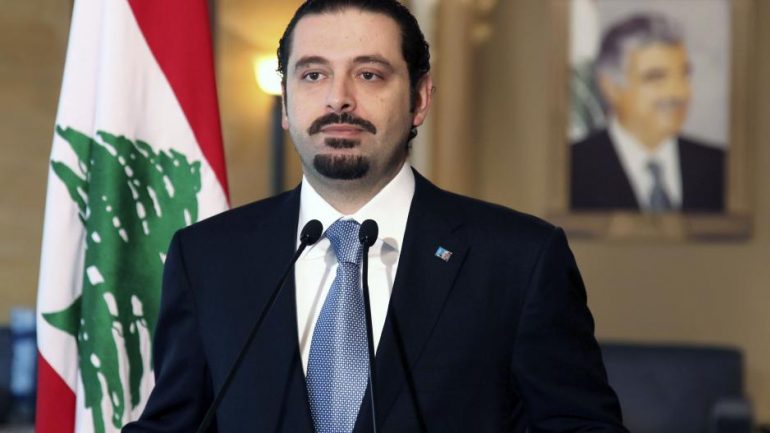He is 47 years old and Prime Minister of his country for about a year. His sudden resignation on November 4th plunged Lebanon into a political crisis, raising questions about his fate.
Saad al-Hariri is the leader of the Movement for the Future, formerly led by Rafik's father.
This is his second term as prime minister as the first lasted from 2009 to 2011. He returned to office in November 2016. He is married to Lara Bashir Al Azem and they have three children: two sons and a daughter.
Read also:
Since the day of his resignation, which he announced from Riyadh, a diplomatic fever has begun to resolve the political crisis that threatens to destabilize the wider region.
However, little is known about the Prime Minister himself. The following stand out:
The property
Hariri is a member of the Hariri political dynasty in Lebanon. His father, Rafik Hariri, also served twice as prime minister and was assassinated in February 2005. He acquired his property as the owner of Saudi Oger Ltd., which is still owned solely by the Hariri family and is headquartered in Saudi Arabia. .
When Rafik Hariri was assassinated, Saad not only inherited his father's political role but also his business. He remains president of Saudi Oger, while Ayman's younger brother is deputy chief executive. Prior to that, he was the head of Oger's subsidiary Oger Telecom.
Forbes estimates that his current net worth is $ 1,4 billion.
Studies in the USA
Hariri went to study in the United States where he graduated from Georgetown University in 1992 with a degree in business administration. In 2009, university authorities announced that he had donated $ 20 million to the School of Business Administration to name a new building in honor of his murdered father.
The building was inaugurated in September 2009 and the ceremony was attended by his younger brother, Fad Hariri.
Saad also inaugurated two new scholarships at the same school, the Hariri Family Postgraduate Scholarship and the Saad R. Hariri Undergraduate Scholarship.
His other activities in the US include the Hariri-USA Foundation, based in Bethesda, Maryland. It was founded by his father and provides scholarships to young Lebanese students in the United States. One of his programs fully covers tuition for two years of graduate study at Boston University.
The warrant
In December 2012, the Syrian government issued an arrest warrant against him, according to Reuters and as confirmed by diplomatic sources in Beirut in the APE-MPE. Syrian President Bashar al-Assad has accused Hariri and his ally Oqab Sakr of "terrorist crimes" for their support of the civil war in Syria. The warrant was issued about a year after the end of Hariri's first term as prime minister, when Assad-affiliated parties withdrew from the cabinet.
The Syrian government has claimed that Hariri and Sakr were discussing sending weapons to rebel Louis Mekdad. Sakr claims that the material shown on Lebanese television was falsified. Hariri responded to the warrant against him by calling Assad a "monster" in an interview with the Daily Star.
Hariri has long been a critic of the Assad regime. In 2014, he accused Assad of carrying out a car bomb attack on Rafik's father.
However, the assassination suspects are linked to Hezbollah, the militant group based in the Lebanese parliament and cabinet. Hezbollah backs Assad
"Everyone knows who gave the order. It was Bashar al-Assad, "he told Europe 1 Radio in 2014." One day we will go and catch them (those in charge). They will be held accountable. "
Exile for three years
Hariri was exiled from 2011 to 2014 after the collapse of his first government. His government collapsed in January 2011 when Hezbollah-led opposition parties ousted the cabinet while Hariri visited US President Barack Obama.
During his exile he remained in France and Saudi Arabia. His return, in August 2014, came as a surprise. According to France24, before returning, he announced that the Saudi royal family was financially supporting the Lebanese army's fight against extremists on the country's border with Syria.
He then told the British Guardian that he feared for his life.
"I would very much like to return," he told the newspaper in January 2014. "But I think the challenges facing Lebanon are enormous and one of them is to stay alive. "Lebanon will have better luck if I stay alive to serve it."
